Environment Justice Matters Vol. 4 Issue 08: On World Environment Day, Youth Imagine their Futures

On World Environment Day – 2023, students express their Ideas of Transformation to Sustainability
Three groups of undergraduate students from various disciplines studying at Azim Premji University interned with ESG for a week each through May 2023. Each group had a dozen students and spent a week studying three distinctive, but interrelated, topics: Green Hydrogen and its Implications, State of Biodiversity Conservation in India, and Bengaluru’s Climate Action preparedness.





Undergraduate Students of Azim Premji University, Bengaluru
Despite the paucity of time (a week for each group), students demonstrated deep learning & amazing foresight! Invited to demonstrate their learnings, the three student groups have put together statements on what they have discovered is the state of affairs, which you can find here.
These groups are representative of the youth of India and their deep worries about the abysmal state of affairs in environmental and biodiversity protection, and wise choices of energy production. These statements must be considered seriously by the powers that be and corrective action needs to follow.
ESG In Focus
Leo Saldanha analyses reasons for BJP’s phenomenally strong performance in Bengaluru, in stark contrast to the party’s rout across Karnataka in the recent state elections. Read his article, ‘Analysing BJP’s success in Bengaluru this election’ in The News Minute here. He discusses this also on Mirror Now TV.
May 2023 was the rainiest May ever recorded in Bengaluru. 31 cm of rainfall beat the earliest wettest May of 1957. Over 38 trees have been uprooted in Cubbon Park due to the rains. What is more tragic is that a young woman died in the middle of the city when her vehicle was traversing a flooded underpass. Bhargavi Rao explains why Bengaluru floods every time it rains, on India Today’s So South. She also went on Radio City 94.3 to discuss the importance of rehabilitating water commons to build water and ecological securities, and also save lives and livelihoods.
Read also Prem Chandavarkar’s thought provoking essay on “Human Limits to Environmental Endeavours” which is based on his intervention at the commemoration of ESG’s 25th anniversary.
India’s Risks

Capt. Mohan Ranganathan in an incisive article recalls ESG warning precise risks of Mangalore airport expansion, a decade before the deadly 2010 air crash at the airport in the exact manner as was predicted. Yet, no lessons appear to have been learned as the Airports Authority of India, Director General of Civil Aviation, International Civil Aviation Organisation and several airlines violate fundamental norms of civil aviation. And as has happened in Kozhikode, more disasters are likely, he warns.
In a detailed paper entitled “Article 39 and Environmental Decision-Making in India”, published in ‘India’s Risk: Democratizing the Management of Threats to Environment, Health, and Values’, Leo Saldanha and Bhargavi Rao discuss what causes such disasters.
Hell hath no fury like a lake scorned

May’s deluge exposed consequences of haphazard and unplanned development of Bengaluru, especially encroachment of lakes and raja kaluves. If this is the state before the monsoon’s set in, this metropolis of over 1.4 crores (14 million) needs to be really worried about the abysmal unpreparedness by BBMP in dealing with the long monsoon season. BBMP admits it is yet to clear 784 encroachments over storm water drains and that several primary and secondary channels are still filled with silt. This problem is then transferred to lakes in the city, where disasters are waiting to happen due to incomplete restoration work. Lack of public consultation is also a major hurdle in undertaking holistic lake development.
During early May, Hosakerehalli Lake flooded, a clear consequence of its wilful encroachment by infrastructure built by BBMP and in blatant disregard of Karnataka High Court directions. ESG has raised such incidents of flooding and encroachment as a direct consequence of lack of compliance with Court directives in ESG’ PIL advancing protection of lakes and raja kaluves, and this aspect has been highlighted in a 30th May 2023 Memo.
Human Rights Violations and Environmental Devastation due to Reckless Urbanisation
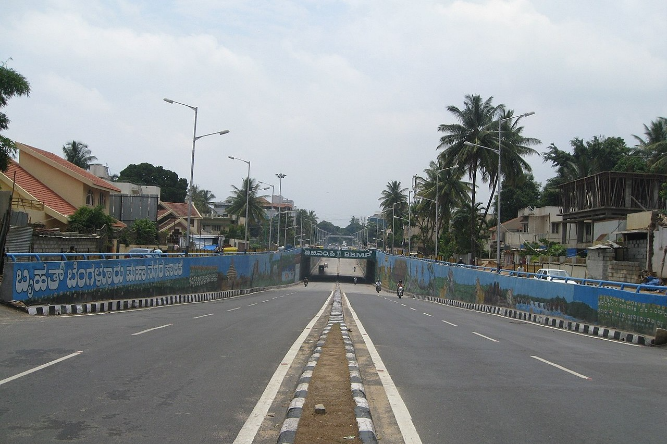
Haphazard and unplanned development of the city continues to take place at an unprecedented rate. In the last year alone, the Bangalore Development Authority has converted over 1,155 acres of mostly agricultural land for residential purposes by taking shelter under the outdated master plan. It has also cleared the formation of 51 private housing layouts and 39 high-rise buildings.
Bad planning has led to the Corporates in Real Estate (CiRE), a leadership platform of over 150 global conglomerates in Bengaluru, proposing to take up the management of the 30-kilometre section of the Outer Ring Road. Some of the proposals for management are to move out street vendors and install 1,200 CCTVs. Developed without democratic participation, this could result in private takeover of public roads roads and denial of livelihoods to thousands of vendors and other poor communities.
Waste management woes

One of the major problems that comes with unplanned development and bad governance is that of waste management and the poor working conditions of the waste workers. In Bengaluru, Pourakarmikas are using plastic mats and cardboard to drag street waste as BBMP stopped providing them pushcarts two years ago. To make matters worse, a dry waste collection centre in the city which was being run by a former waste picker was set on fire and it is suspected vested interests may have committed arson.
The National Green Tribunal in Chennai has warned landowners of heavy penalties for leaving their properties unattended paving way for environmental hazards, if garbage, debris, sullage, mud and so on is dumped on them by miscreants.
In brighter news, in North Lakhimpur, Assam, legacy waste of around 79,000 MT that had accumulated over 40 years near river Subansiri was treated and processed into Refuse-derived fuel and organic matter that can be used as fertiliser. Similarly, Africa is leading in the management of e-waste with 13 countries developing an e-waste policy, legislation or regulation.
Climate Change Impacts and its worsening
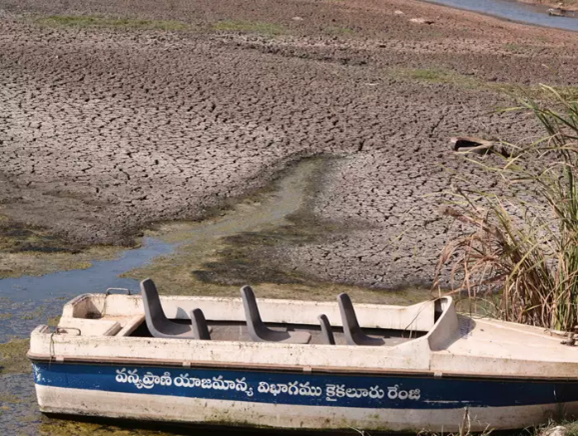
Meanwhile, climate change induced by rapid unsustainable development is causing Jakarta to practically sink. The Indonesian Government appears to have abandoned all efforts to save the city and is instead constructing a new capital in Borneo – claiming it will be a green metropolis.
A new assessment published in the journal Science reveals that more than 50% of the largest lakes in the world are losing water due to global warming and unsustainable human consumption. Another study shows that in India climate change has caused more than 30 large lakes to record a drying trend from 1992 to 2020.
Quick fixes to climate change problems are also worsening the situation. Demand for air conditioning is on the rise and India is set to be the world’s second-biggest market for cooling units after China by 2050. Such increased use of ACs will increase global warming and the worst affected would be tropical countries.
Troubling Pathways of Climate Change Mitigation Strategies

An underestimated resource in climate mitigation is Eelgrass beds which are biodiversity hotspots, exceptional at sequestering carbon, act as buffer for coastal erosion and also help improve water quality.
While one of the pathways to climate mitigation is to reduce the overall consumption of energy, this is still an unpopular pathway for businesses and the public, who prefer energy transition instead.
According to the International Energy Agency, solar power investment is set to outstrip spending on oil production highlighting a surge in clean energy investments. India also plans to stop building new coal-fired power plants, apart from those already in the pipeline, by removing a key clause from the final draft of its National Electricity Policy.

However, energy transition as a pathway to climate mitigation instead of reduction in energy consumption still has dire consequences to the environment. To meet the global demand for green energy technologies, the World Bank estimates that 3 billion tons of critical minerals will be needed by 2050, and worryingly the Amazon is increasingly becoming the region to source these materials.
The Indian government has taken another step into diluting environmental regulatory standards and exempted all pumped storage hydropower projects from the mandatory requirement of environment impact assessments. The reason: ‘lesser’ impact on the environment and their ‘critical’ role in ensuring India’s growing energy needs from Renewable Energy.
Protecting Indigenous knowledge
The Kenyan Government has rolled out an Indigenous Knowledge Documentation and Digitisation (IK DoDi) project that aims at collecting and protecting traditional knowledge and cultural assets for the Kamba community. The indigenous knowledge innovation bank will allow lawful access to the communities’ traditional knowledge to generate income and improve livelihoods, and also prevent biopiracy.
Traditional knowledge derived from tribal communities across the globe not only protects healthy lives and happy livelihoods, but also promotes sustainable management of natural resources like water.
However, there is a real serious worry with digitisation of traditional knowledge given how Artificial Intelligence has unprecedented capacity to encourage biopiracy due to biomining of information of sovereign bioresources. In fact, AI poses an existential threat to humanity itself according to industry leaders who believe mitigating the risk posed by AI should be a global priority.
Another retrograde step the Indian Government is taking is to get National Council for Educational Research and Training (NCERT) to remove topics such as evolution, the periodic table, environmental sustainability and sources of energy from the school syllabus.
Shutting the doors of Environmental Justice on Poor and Natural Resource Dependent Communities
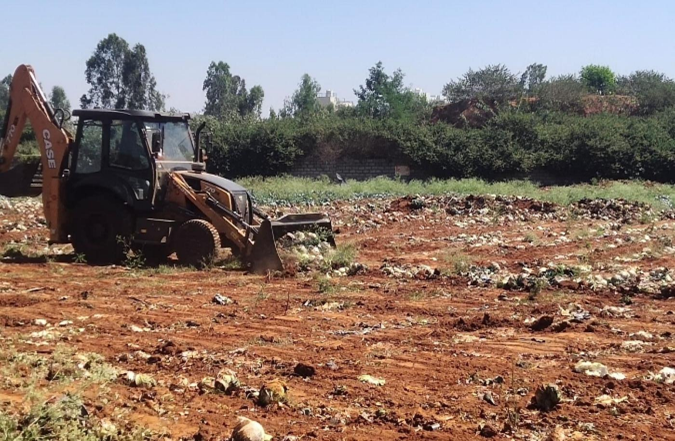
Bangalore Development Authority (BDA) is proceeding with the formation of the controversial Dr. Shivaram Karanth Layout in Bengaluru North at the cost of the rights of several displaced farmers and the environment. The environmental clearance (EC) that was granted to the project was challenged before the National Green Tribunal. However, the case has been dismissed by the Tribunal on the ground of delay. Farmers argued that they had no way of knowing the EC had been extended, when even Panchayats were not informed by Karnataka State Environment Impact Assessment Authority or BDA. But the NGT remained nonplussed and shut the doors of justice on mere technicality.
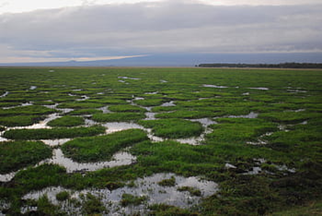
Similarly, fisher communities of Loktak represented by All Loktak Lake Area Fishermen Union Manipur (ALLAFUM) have been denied their right to intervene in a suo moto PIL in the Manipur High Court and bring to the Court’s attention massive impacts on their livelihoods and the environment due to various mega projects – tourism and infrastructure – proposed by Manipur Government with tacit support from the Union Government in the Loktak Wetland Complex. The Court held that the communities came too late and thereby cannot seek remedy to their fundamental rights being encroached upon by these massive projects which will irreversibly impact their lives and livelihoods and the ecologically sensitive wetland designated a Wetland of International Importance per the UN Ramsar Convention.
The changes proposed in the recent Forest (Conservation) Amendment Bill, 2023 effectively alters the definition of ‘forest’ making vast tracts of what would otherwise be considered forests, vulnerable to diversion. In a further dilution of federated governance, the Ministry of Environment, Forest and Climate Change has decided that forest officials cannot take cognizance of offences under the Forest Conservation Act, 1980 without the approval of the Centre.
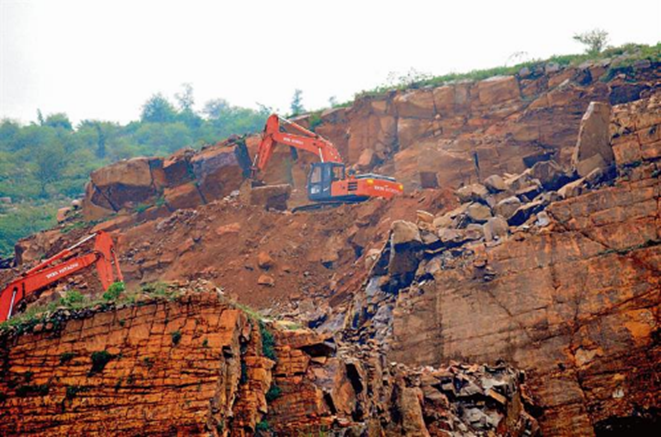
This when the Union Government has failed to implement the Forest Rights Act, 2006, which has been condemned by more than a hundred indigenous, forest-dwelling, and tribal delegates from 12 States across the country during a two-day convention on forest rights held in Delhi in early May.
With the intervention of the Supreme Court, the local communities who will be affected by the forest land diversion for the Dhinkia Steel Project will finally have a say in the re-examination of the project’s potential environmental impacts. Meanwhile, The NGT has come down hard on the Haryana Government for its failure to take proper action against illegal mines operating in the Aravallis.
Towards a Plastic Treaty
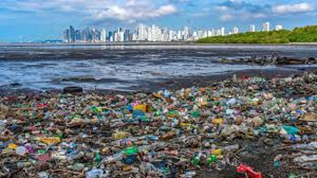
UN Experts say that the global plastic production has increased exponentially and the world is currently generating 400 million tonnes of plastic waste yearly. They warn of an overwhelming toxic tidal wave caused when plastic pollutes our environment and impacts human rights over its life cycle.
This comes at a time when the Second Session of the Intergovernmental Negotiating Committee (INC) on Plastic Pollution was held at the UNESCO HQ in Paris, France, from 29th May – 2nd June, 2023, where negotiators are working on a treaty to combat plastic pollution. The second session concluded with a mandate for the INC Chair to prepare a zero draft of the international legally binding instrument on plastic pollution which will be put forth at the third session to be held in Nairobi, Kenya, in November.
Obituary

Manoj Misra, environmentalist and former Indian Forest Services officer, passed away on June 4, 2023 after prolonged illness caused by COVID-19. As the convenor of the Yamuna Jiye Abhiyan, he fought relentlessly for the revival of the Yamuna River. He also fought actively against deforestation, illegal mining and pollution through legal battles that have gained widespread recognition.
Environment Support Group (Trust)
1572, 36th Cross, Ring Road, Banashankari II Stage
Bangalore 560070. INDIA
Tel: 91-80-26713560 | Voice/Fax: 91-80-26713316
Website: esgindia.org Email: [email protected]
Follow our Facebook, Instagram, Linkedin and Twitter page
- ESG is registered to secure support under the Corporate Social Responsibility (CSR) scheme of the Ministry of Corporate Affairs. Reg No. – CSR00017320
- Environment Support Group (ESG) is eligible to receive foreign donations/grants per the Foreign Contribution Regulation Act (FCRA)
- All donations to ESG from Indians are eligible for tax exemptions as per Sec. 80G of the Income Tax Act.
More details about ESG’s Financial Reports and Statutory Approvals are accessible here: https://esgindia.org/new/financials-and-statutory-clearances/
Your Monetary Contributions Keep Us Working

Donate via UPI(This QR Code is applicable ONLY to Indian/Domestic donors. Post UPI payment, please share donation details to [email protected] along with PAN – statutory requirement.)

